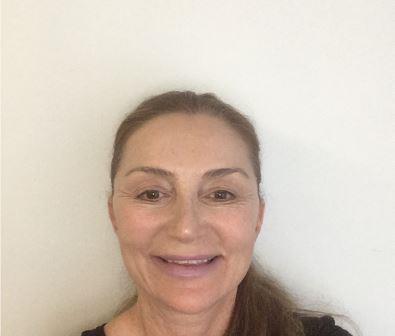Naomi Wenzel ARNP, M.Ed. says that her early life experiences of living in orphanages in South America within the Hispanic culture has been pivotal in the work that she has chosen to do as she reaches the mid to latter portion of her working career.
Twenty two years ago, she was invited by the Sisters of Providence (Providence Health care system in Seattle) to join them in caring for the migrant Hispanic families in Yakima. After assessing the needs of the community and designing tools to measure outcomes, Ms. Wenzel worked out of a medical van where she traveled to apples fields, community centers or churches to help families access care. She says part of the greater challenge was that once they assessed the need (through screening) particularly for mental health, there were no affordable resources available for our families to follow through with treatment. As a way to meet the need, Ms. Wenzel started to volunteer at the local free clinic.
Ms. Wenzel currently works with Comprehensive Health Care in the inpatient adolescent E and T facility (she also previously worked with outpatient adults and children), where she assesses and stabilizes youth with suicidal, homicidal ideation or who are gravely impaired. At the Unit, she treats previously undiagnosed mental illness, current mental illness and help youth learn healthy ways to respond to distress prior to their discharge home, if the home is a safe environment.
Ms. Wenzel’s other work involves consulting with a Chemical Dependency inpatient facility in which many of the clients have not been diagnosed or recently treated for their mental illness, and helping with prescribing medications during the withdrawal phase of their chemical dependency treatment.
Lastly, Ms. Wenzel volunteers at the Free Clinic as the mental health provider and hold support groups at the clinic or at local churches.
Ms. Wenzel’s main interest in Collaborative Care is to assist the underserved populations in Yakima that work in the agricultural industry who typically are not insured. She has found however, that not having access to additional help in Behavioral Health or in Chemical Dependency is a challenge. She is hoping that going through the Fellowship program will give her the expert panel she needs to formulate her idea into a practical and innovative way of dealing with mental illness/chemical dependency in multiple settings and populations, not just the underserved.
Thanks to today’s technology and how easily it has become to connect with different systems, Ms. Wenzel’s hope is that people feel less isolated, and have less and less of a challenge in collaborating with different specialties and truly begin to have an integrated medical system that can offer comprehensive and cost effective ways of doing wellness, and preventing costly consequences of “no care” or inadequate care.
